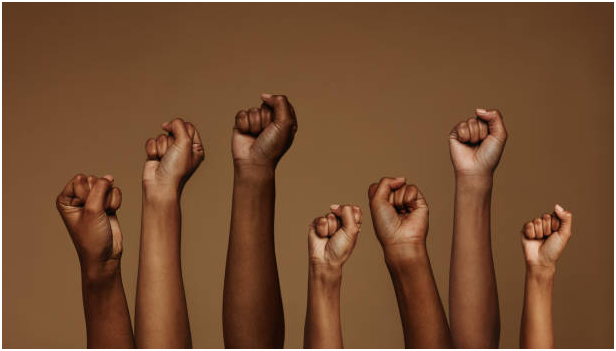Data from a new Gallup poll that asks respondents’ views on racism finds some common ground between Black and white Americans — except when it comes to addressing the problem.
By Liz Courquet-Lesaulnier | Word In Black | September 1, 2025
It’s the kind of polling data that gets a “water is wet” side-eye from Black folks. But the results of a recent Gallup poll reveal that when asked whether racism against Black people is “widespread,” nearly two-thirds of Americans now say yes.
Sixty-four percent, to be precise — the same record-high number Gallup recorded in 2021, in the summer of the so-called racial reckoning after George Floyd’s murder. But if Americans think racism is so pervasive, what do they want to do about it?
It turns out, not much.
The Vanishing Appetite for Civil Rights Laws
In our current whitelash reality of Project 2025 and anti-DEI crusades, when even acknowledging racial inequities has become a liability for grade schools and colleges, less than half of America believes the country needs new civil rights laws to reduce discrimination. That’s down 15 points from 2020 after Floyd’s murder.
Stark differences between white and Black Americans show up in the poll results. Nearly 75% of Black adults want new civil rights protections, while just 40% of white adults say new ones are needed.
Gallup has been asking the question “Do you think racism against Black people is or is not widespread in the U.S.?” since 2008. Back then, almost 60% of U.S. adults agreed racism was widespread. By the following year, when hope and change put Barack Obama in the White House as the nation’s first Black president, only 51% said racism was widespread.
But the post-racial illusion of the Obama years didn’t last.
Admitting Racism Exists
By 2015, when a white cop in Ferguson, Missouri, gunned down Michael Brown, an unarmed Black teenager — igniting a wave of protests and turbocharging the Black Lives Matter movement — 60% of Americans said racism was widespread. Since then, the survey results have barely dipped.
Black Americans continue to experience the country differently from other racial groups. Eight in 10 Black adults told Gallup they believe racism is widespread, compared with 61% of white adults and 64% of Hispanic adults.
And when asked about everyday situations — at work, in stores, at the doctor’s office, on the street — whether or not Black folks experience racism is a matter of debate for white America.
Black People and Reality
Seventy-seven percent of Black adults say they are treated less fairly than white people in encounters with police; 59% say the same about how they’re treated in healthcare and around the office. By contrast, just three in 10 white adults say they see Black people treated unfairly on the job.
When it comes to concrete opportunities, the divide between Black folks and everyone else continues. Fifty-five percent of all Americans say Black people have as good a chance to get a job they’re qualified for as white people, and 56% say the same about housing. Those numbers are basically unchanged since 2021, but far below where they stood in the 1990s and early 2000s, when roughly 70% of Americans were far more likely to believe equality had been achieved.
Meanwhile, white adults remain about twice as likely as Black adults to believe job and housing opportunities are equal
Civil Rights, But Make it Relative
Even as most Americans say racism is everywhere, most also say civil rights for Black people have improved in their lifetimes. Sixty-eight percent believe things are “somewhat” or “greatly” better. But optimism is waning
In 2011, at the height of the Obama years, nearly 9 in 10 respondents said Black civil rights had advanced. That sank to 59% in 2020, after George Floyd’s death. Now, 73% of whites say civil rights for Black people have improved, while only 53% of Black people agree.
So what does the data point — that 64% of people who believe racism exists — really tell us? That polls don’t magically solve racism. That Americans can acknowledge anti-Blackness exists without actually having to confront it. That progress hasn’t erased bias in workplaces, hospitals, or during interactions with police.
And that Black folks live in reality, while white communities toggle between recognition and denial.
Please consider supporting open, independent journalism – no contribution is too small!
